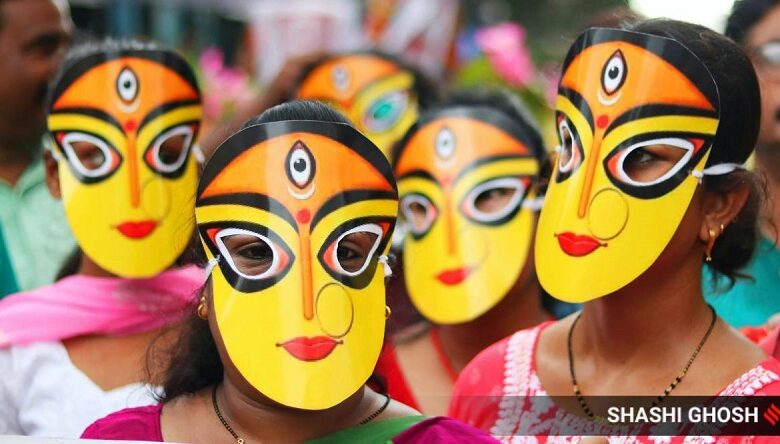Documenting and Digitalization of Bengal’s Intangible Traditional Folk Performing Arts & Cultural Heritage

Natural disasters, climate change and infrastructural expansion have put cultural heritage at risk on a wide scale in recent years. Cultural heritage helps us understand our own origins while at the same time promoting respect and initiating a dialogue with other cultures. Protecting and maintaining cultural diversity is one of the priorities of the Federal Foreign Office’s cultural work abroad.
The Cultural Preservation Programme of the Federal Foreign Office (German Ministry of External Affairs) works with German and international partners, including UNESCO and private foundations, to preserve major historical and cultural testimonies to the history of mankind. The focus is on protecting cultural property and heritage sites where there is insufficient funding for steps to preserve them.
From 1981 till 2021 more than 3500 projects in 147 countries were supported under this programme with around 86 million Euros. One of the most famous project is the German Apsara Conservation Project where German-Cambodian team worked together to preserve the Angkor Wat temple. Another great example closer home is the 2019 project of the restoration of a traditional “Arab Ki Sarai Baoli” (water steepwell) in the Humayun Tomb complex in New Delhi. In India there have been more than 60 projects so far.
In 2019, the Consulate General in Kolkata supported a project on “Reviving Shola craft of Bengal” with the local project partner Contact base/ banglanatak to revive the intricate and exquisite traditional craft of Bengal which was almost lost. This year we are happy to support another project towards preserving cultural heritage of Bengal where some of the Bengal’s intangible traditional folk performing art forms like Pata Khumur, Rabon Kata Naach, Kurmali Machni, Bohurupee, Sapuriya Gaan, Jele Paraar Saang, Hapu will be documented and digitalized. Kolkata Suktriti Foundation will be the project partner who has received the funding of around 60,000 Euro (approx. 51,00,000 INR) from the German government.
Quote from Consul – General Manfred Auster:
“The Cultural Preservation Programme is multi-faceted: it does not only support the restoring of historic sights, but also focuses on preserving culture in a wider sense, e.g., by documenting traditions in music and dances. Through this German programme, future generations will be able to experience the richness of culture in a sustainable way. We are proud to once again bring it to Kolkata, the city which is rightly known as the cultural capital of India.”
(This story has not been edited by News Mania staff and is published from a Media Release)






